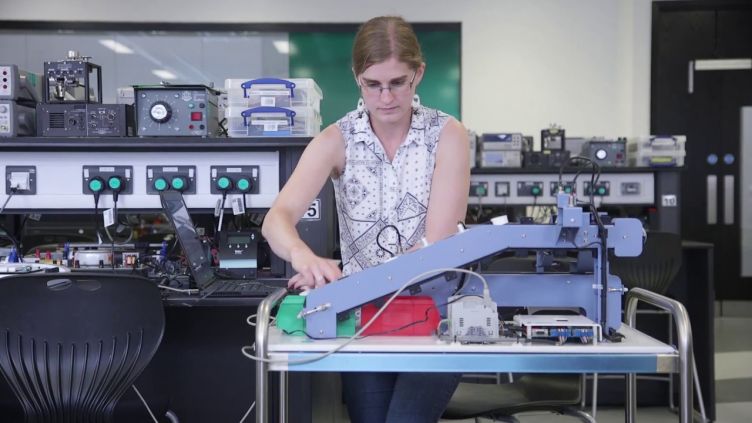My placement at GlaxoSmithKline allowed me to see how my course related to industry

Watch: Our interview with Rachael
I decided to do systems and control engineering at university because I did an A-level on it. When I was looking around at universities I was originally looking for electrical and electronics and I came to a University of Sheffield open day and found the systems and control information desk.
I looked into it a bit more and found that it was what I was more interested in and having done an A-level in it originally then going on to do a degree it seemed quite logical. When I looked into other courses and other universities that offered systems and control I found that, while there were a few, there was nowhere else that had its own dedicated systems and control department - Sheffield is the only one in the UK.
As part of my degree I spent a years industrial placement working for GlaxoSmithKline. I was working on their secondary manufacturing site up in Barnard Castle in the Capital Projects Office and as part of my role I got to go across the entire site helping to install, commission and validate all new equipment coming onto site. This gave me access to all areas which meant I could see how my course related to industry and how the building management system, which is the main thing I was working on, could be used to control different pressures, monitor different bits of equipment and the vital work it did in industrial manufacturing and in industry in general.
I really enjoy being an engineering student as I get to find out how systems work and how things are put together. I used to enjoy it when I was really little and now I get to do it as my degree and will go on to do it as my career.
Rachael Rix
Automatic Control and Systems Engineering student
In my third year of university I took a module called Bio Mechatronics and this has probably been my favourite module so far. Fifty percent of the marks for the module was an individual project where we researched different bio mechatronics devices and I chose to look into visual prosthetics. As part of this I got to find out all the different types of visual prosthetics that are out there currently, how they work, how they're going to improve what current technology limitations there are and I got to look into where this technology could go in the future. I found it really interesting just to be able to run with something that was completely my own research and something I was genuinely interested in.
We interviewed Rachael in 2017.

